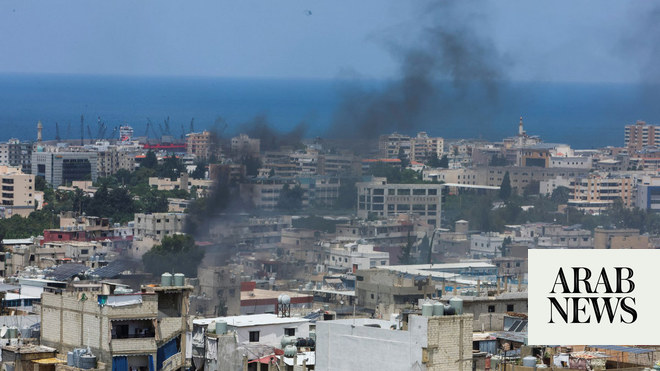
BEIRUT: A top UN peacekeeping official on Tuesday moved to scale down the operations of a naval security task force in Lebanon.
UN Under-Secretary-General for Peacekeeping Operations Jean-Pierre Lacroix held talks with Lebanese officials about the gradual reduction of tasks being carried out by the UNIFIL Maritime Task Force (MTF).
During a meeting, the UN official asked Lebanese Defense Minister Elias Bou Saab to “reinforce the presence of the Lebanese army in the south and the capabilities of the Lebanese navy” in order to cut the MTF’s security responsibilities.
Lacroix also addressed Lebanese concerns over sensitive maritime border claims with Israel.
Arab News has learned that UNIFIL is under pressure to reduce its spending in the country.
The MTF was the first force of its kind in the history of UN peacekeeping missions when it was established in October 2006 at the request of the Lebanese government within the framework of UN Security Council resolution 1701 (aimed at resolving the 2006 Israel-Lebanon conflict).
The aim of the task force has been to support the Lebanese navy in securing its coastline and territorial waters and help prevent unauthorized entry of arms or related materials by sea into Lebanon.
After meeting with Lebanese President Michel Aoun and Foreign Minister Gebran Bassil, in Beirut, Lacroix stressed “the importance of cooperation between the Lebanese authorities and the UN forces, especially since we have been in southern Lebanon for decades. This has contributed to calming the situation despite some problems that we and the Lebanese authorities jointly deal with.”
The UN official added: “We expressed our pleasure to continue this cooperation under the new government, which represents an opportunity to give impetus to important projects for Lebanon by strengthening the presence of the army in the areas where UNIFIL operates and to gradually work to strengthen the Lebanese maritime capabilities, which would allow for a transitional phase of tasks in this area between UNIFIL and the army.”
Aoun told Lacroix that Lebanon “still faces Israeli opposition to the demarcation of the maritime border in the exclusive economic zone, despite suggestions made in this direction.”
Bou Saab said: “The question of borders is sensitive today because the parties concerned are trying to determine the final shape of the maritime border and the situation requires further discussion.”
Lacroix also listened to complaints from Lebanese officials about continued Israeli violations of UN resolution 1701.
Since being set up, the MTF has been operating along the entire Lebanese coast, extending 80 km westward in the Mediterranean Sea. It conducts ongoing surveillance of commercial traffic, particularly along the corridors of access to the three main Lebanese ports of Beirut, Tripoli and Sidon.
But a UN source told Arab News that following a strategy review last year UNIFIL had been ordered to cut its operational costs. The source said UNIFIL had a budget of around $500 million which it spent on 11,500 soldiers and about 865 civilian staff.
In an attempt to reduce expenditure, UNIFIL slashed the number of flights between its Lebanese headquarters in Naqoura and Beirut, but the source said the savings were not enough and the UN had requested more cutbacks in light of a decline in US funding for the organization.










